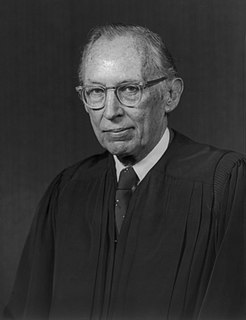A Quote by Herb Kohl
Judicial excellence means that a Supreme Court justice must have a sense of the values from which our core of our political- economic system goes. In other words, we should not approve any nominee whose extreme judicial philosophy would undermine rights and liberties relied upon by all Americans.
Quote Topics
All Americans
Any
Approve
Core
Court
Court Justice
Economic
Economic System
Excellence
Extreme
Goes
In Other Words
Judicial
Justice
Liberties
Means
Must
Nominee
Other
Our
Philosophy
Political
Rights
Sense
Should
Supreme
Supreme Court
Supreme Court Justice
System
Undermine
Values
Which
Whose
Words
Would
Related Quotes
In 1987, I had my first opportunity to provide 'advice and consent' on a Supreme Court nominee. At that time, I stated that the qualifications essential for evaluating a nominee for the bench included 'integrity, character, legal competence and ability, experience, and philosophy and judicial temperament.' On that test, Elena Kagan fails.
Judicial activists are nothing short of radicals in robes--contemptuous of the rule of law, subverting the Constitution at will, and using their public trust to impose their policy preferences on society. In fact, no radical political movement has been more effective in undermining our system of government than the judiciary. And with each Supreme Court term, we hold our collective breath hoping the justices will do no further damage, knowing full well they will disappoint. Such is the nature of judicial tyranny.
I can only express the hope that faith in the judicial system will never be diminished, and I am sure it will not, so long as we allow a review of the judicial processes that takes place here in some other tribunal where obviously undue influence cannot be brought to bear. As long as governments are wise enough to leave alone the rights of appeal to some superior body outside Singapore, then there must be a higher degree of confidence in the integrity of our judicial process. This is most important.
Equal justice under law is not merely a caption on the facade of the Supreme Court building, it is perhaps the most inspiring ideal of our society. It is one of the ends for which our entire legal system exists...it is fundamental that justice should be the same, in substance and availability, without regard to economic status.
If Americans loved judicial activism, liberals wouldn't be lying about what it is. Judicial activism means making up constitutional rights in order to strike down laws the justices don't like based on their personal preferences. It's not judicial activism to strike down laws because they violate the Constitution.
































